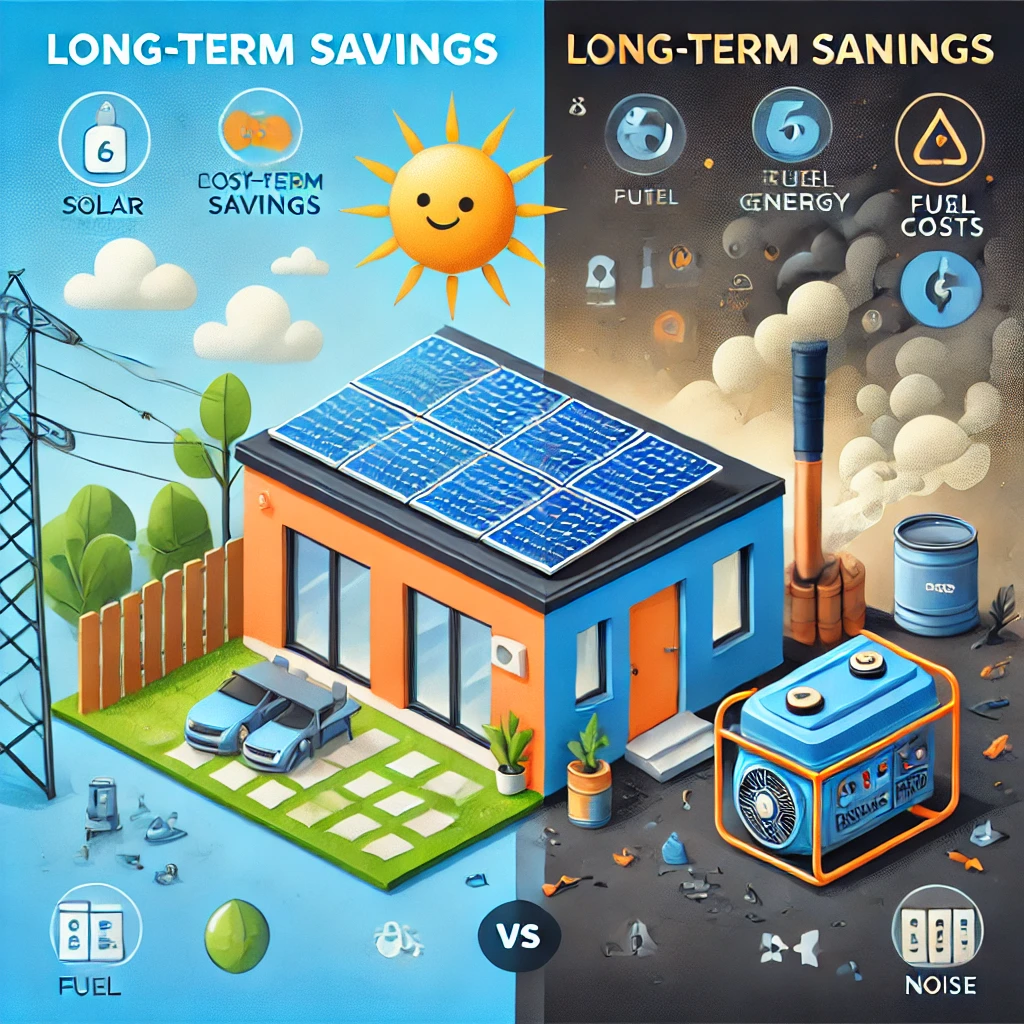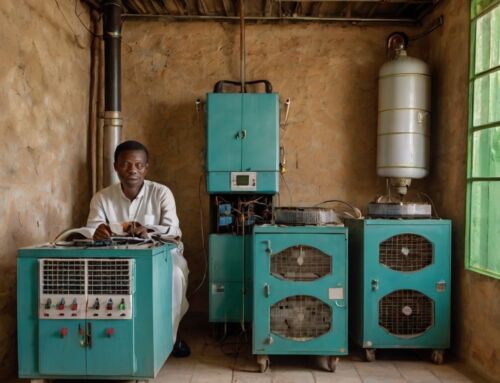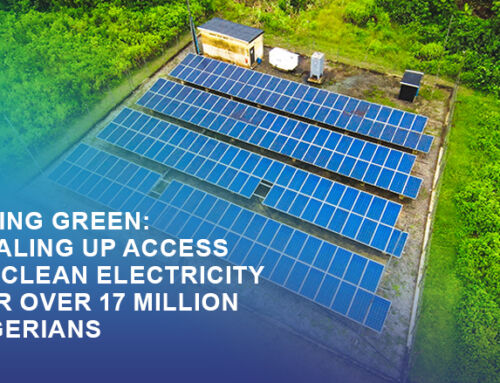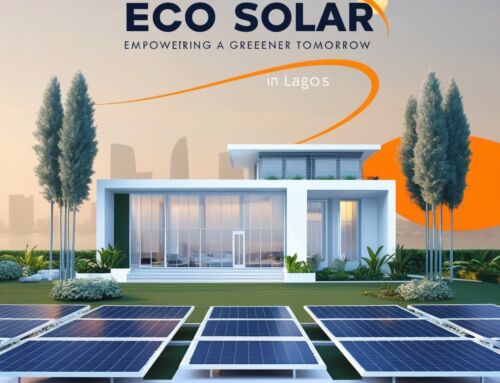In Nigeria, where power outages are frequent and electricity from the national grid can be unreliable, backup power solutions are essential for homes and businesses alike. While generators have long been the go-to option, solar power is emerging as a viable and cost-effective alternative. This article compares the two options in terms of cost, convenience, environmental impact, and long-term savings, helping you determine which solution best suits your needs.
1. Initial Costs and Setup
- Generators: Generators are generally less expensive upfront, with costs depending on the size and capacity of the generator. However, for large homes or businesses, high-capacity generators can be quite costly.
- Solar Power Systems: Solar systems have higher initial setup costs, covering solar panels, inverters, batteries, and installation. While the upfront investment may seem substantial, it’s essential to view this as a one-time investment that yields long-term benefits.
Verdict: Generators are less costly initially, but solar systems provide better long-term value as the initial investment eventually pays off through energy savings.
2. Operational Costs
- Generators: Generators require regular refueling, usually with diesel or petrol, which is becoming increasingly expensive. Additionally, routine maintenance—such as oil changes and repairs—is necessary to keep generators running smoothly, leading to ongoing operational costs.
- Solar Power Systems: Solar systems use sunlight, a free and renewable resource, eliminating fuel costs. Once installed, solar power systems have minimal operational costs, mostly limited to occasional maintenance.
Verdict: Solar power offers significant savings in operational costs, especially in the long term, as there are no fuel expenses involved.
3. Reliability and Energy Security
- Generators: Generators can provide power instantly when there’s an outage, making them highly reliable for immediate backup. However, their reliability is tied to fuel availability, which can sometimes be uncertain or costly.
- Solar Power Systems: Solar power is dependent on sunlight, so it may not produce electricity during rainy days or at night unless combined with a battery storage system. With battery backup, solar systems can provide reliable energy day and night, offering a more sustainable power source without the need for fuel.
Verdict: Generators offer immediate power backup but are limited by fuel dependence. Solar power with battery storage provides a reliable, independent energy source that enhances energy security.
4. Environmental Impact
- Generators: Generators produce greenhouse gases and air pollutants like carbon monoxide, which contribute to climate change and harm air quality. Noise pollution is another downside, as generators can be quite loud and disruptive.
- Solar Power Systems: Solar power is a clean, renewable energy source that produces no emissions during operation. It’s an environmentally friendly solution that reduces your carbon footprint and supports sustainability goals.
Verdict: Solar power is the clear winner for environmental sustainability, as it generates electricity without pollution or noise.
5. Maintenance Requirements
- Generators: Generators require regular maintenance, including oil changes, filter replacements, and periodic inspections. Poor maintenance can lead to costly repairs and shorter lifespan.
- Solar Power Systems: Solar panels require very little maintenance beyond occasional cleaning to ensure maximum efficiency. Battery systems may need attention over time, but maintenance demands are generally low compared to generators.
Verdict: Solar power systems are low-maintenance, reducing long-term service costs and downtime.
6. Long-Term Savings
- Generators: Over time, the recurring costs of fuel and maintenance add up significantly. Although generators can provide immediate backup, they’re not designed for continuous, cost-efficient power, leading to higher expenses over the years.
- Solar Power Systems: Solar power systems require a higher initial investment, but they offer substantial savings in the long term. With minimal maintenance and no fuel costs, users can see a return on investment within a few years, especially with rising fuel prices. After the payback period, the system essentially generates free electricity.
Verdict: Solar power offers considerable long-term savings, making it a better investment over time as it allows users to avoid ongoing fuel and high maintenance costs.
7. Making the Choice: Which is Right for You?
- Generators may be suitable for those who need an immediate, affordable power backup option for short-term use, or for locations where sunlight is limited. However, they come with ongoing fuel and maintenance costs that can add up significantly.
- Solar Power Systems, while requiring a larger initial investment, are ideal for anyone seeking a sustainable, cost-effective, and environmentally friendly long-term power solution. With advances in battery technology, solar systems can provide dependable power even during off-peak sunlight hours, making them a comprehensive energy solution.
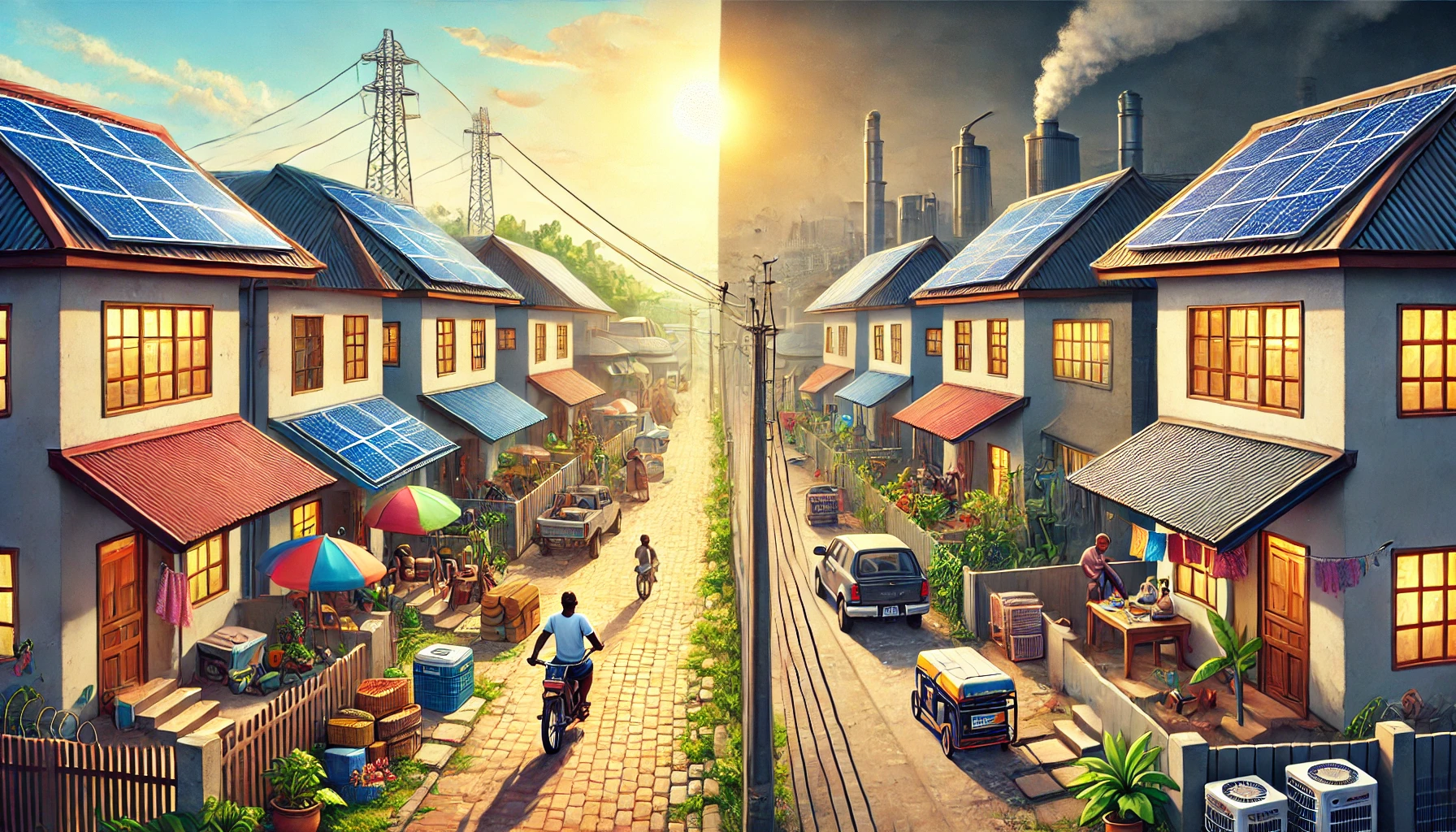
Conclusion:
In the long term, solar power is the superior option for cost savings, sustainability, and reliability. While generators offer an affordable backup power solution, their reliance on costly fuel and maintenance makes them more expensive over time. Solar power systems, especially when paired with battery storage, provide an independent, eco-friendly, and financially sound investment.
If you’re considering making the switch to solar, EcoVolt.ng can guide you through every step of the process, from system selection and installation to ongoing support. By investing in solar power, you’re not only reducing your energy costs but also contributing to a cleaner, more resilient energy future for Nigeria.
“Solar power is no longer a luxury; it is a practical and affortable choice for homeowners looking to reduce their energy bills and carbon footprint.”
Solar Expert

